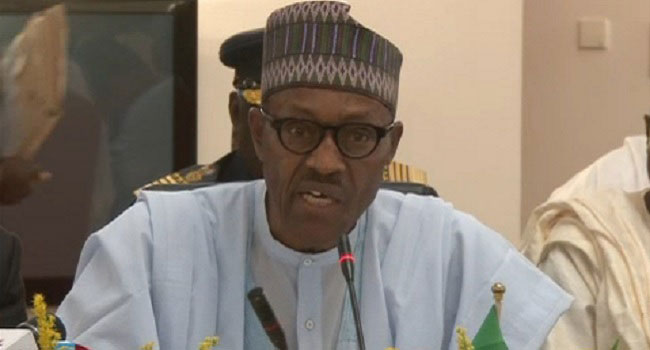charged to improve implementation of local content policies in order to enable creation of indigenous companies and employment in the two sectors.
The stakeholders at a one-day sensitization seminar on Local Content Development in Shipping, Oil and Gas Logistics Operation in Nigeria, organized by Maritime Reporters Association of Nigeria (MARAN) in Lagos, yesterday, called on the Nigerian National Petroleum Corporation (NNPC), the Nigerian Maritime Administration and Safety Agency (NIMASA) the Nigerian Content Development and Monitoring Board (NCDMB) to implement, with full force, existing local content laws and policies, such as Coastal and Inland Shipping (Cabotage) Act of 2003, which gives Nigerian vessels the right of first refusal in lifting cargoes from the country’s waters.
Otunba Kunle Folarin, while delivering a lecture titled, “Seafarers Perspective on Local Content Development in Oil and Gas Shipping Logistics Operation,” decried the Ministry of Transportation for allowing foreign shipping lines freedom to employ and engage foreign seafarers on oil vessels.
He said, “Up till today, 70 to 80 per cent of seafarers in our waters are foreigners. We need to have a very clear policy regime on how to acquire the vessels on which the local seafarers can work. NIMASA has told us that there are over 12,000 seafarers registered with it, but we do not know where they work. There is need to know the reality of the situation. A few weeks ago the largest vessel in oil and gas industry berthed in Lagos, the Egina and this is a good example on the way to follow. We must find how to integrate Nigerians into the oil and gas sector in all of its ramifications.”
According to the maritime industry analyst, in the last two years, 407 vessels called on Nigerian ports, with none having Nigerians on board as workers.
“Even if only one of these vessels have Nigerians as its seafarers, we can be sure of about 5,000 Nigerians onboard that vessel. Nigeria has spent about $15 billion to support foreign trade in the last few years, but the question is how much are we getting back? Nigeria has 200 exclusive economic zones, over 870km coast line. Nigeria’s maritime domain alone can support her economy,” he noted.
On his part, the President of Nigerian Licensed Ship Chandlers Association, Dr. Martins Enebeli, charged maritime reporters to follow strictly, Section 22 of the 1999 Constitution of the Federal Republic of Nigeria, which mandated them to hold leaders accountable for the benefit of Nigeria.
While alleging that about 250 Nigerian seafarers were currently in prison for flimsy reasons, Enebeli called for the release of such Nigerian seafarers who were detained without trial or without tangible evidence of crime against them.
He also charged NIMASA to wake up to its responsibilities in the area of Cabotage Act implementation, submitting that “there are no illegalities in our waters, but the bureaucracies in the industry are the bane of its development.”
“It is not true that Nigerians lack the capacity to do most of these things. There are about 21 agencies of government in the maritime and oil and gas environment, but they are not achieving results,” he noted.
The Corporate Communication and Zonal Coordinator, Nigerian Content Development and Monitoring Board (NCDMB), Dr. Ginah Ginah, said many pipelines were built over 50 years ago which needed to be replaced as a matter of urgency.
According to him, the NCDMB had handed over N200 billion to the Bank of Industry to enable indigenous operators to access loan at 8 per cent interest.
“We have trained 500,000 Nigerians on Local Content developments but there was no vacancy to enable them to operate. There is need to improve low functional steel sector to solve the immediate problem of the oil and gas sector in the country,” Ginah said.
In his goodwill message, the Governor of Edo State, Mr. Godwin Obaseki, who was represented by the President, Waterways Oil and Gas Association, Capt.Tony Vevakpor, informed that the Gelegele Port is in process.
Vevakpor said that dredging was ongoing as well as construction of modular refineries to decongest Lagos ports.
Earlier in his welcome address, the President of MARAN, Mr. Anya Njoku, said that shipping operations in Nigeria were problematic sector in view of the complexities associated with operations in shipping, oil and gas operational logistics.
According to him, it is important for Nigerians to take over operations in these sub-sectors to make gains as these sectors were lucrative if properly administered.
“By so doing, we demand that speakers should deliver practical and achievable experience as this will land us half way to the moon, since there is no end to knowledge,” he said.
Njoku urged members of the armed forces including Navy, Army, Police and Customs, to work in line with the constitutional provisions and the standard set by the International Maritime Organization (IMO) as well as other international agencies.
“Customs should also work with institutions that have enacted conventions and regulations on how to conduct smooth commercial shipping and operational logistics and ensuring good conducts in all ramifications to achieve the set goal in the sub-sector,” Njoku said.
Send your news, press releases/articles to info@primetimereporters.com. Also, follow us on Twitter @reportersinfo and on Facebook on facebook.com/primetimereporters or call the editor on 07030661526, 08053908817.

